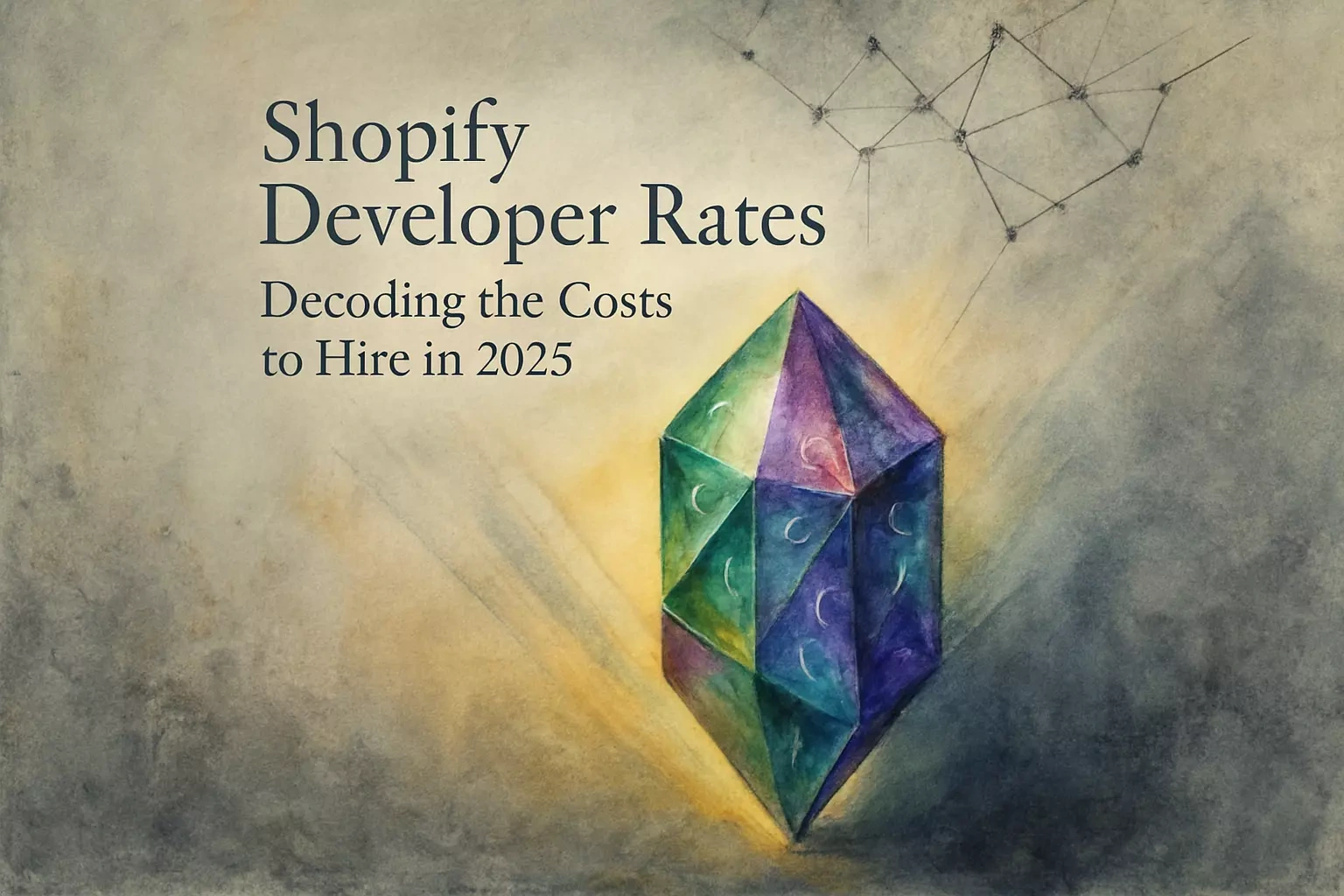Shopify Developer Rates: Decoding the Costs to Hire in 2025

Shopify Developer Rates: Decoding the Costs to Hire in 2025
Average Shopify Developer Rates: What to Expect
Hourly Rates: A General Benchmark
Project-Based Pricing Models
Retainer Agreements for Ongoing Work
Key Factors Influencing Shopify Developer Costs
Developer Experience and Expertise Level
Project Complexity and Scope
Geographic Location of the Developer
Type of Engagement: Freelancer vs. Agency
Urgency and Project Timeline
Understanding Different Cost Tiers
Entry-Level / Basic Customizations
Mid-Level / Advanced Customizations & Integrations
Expert-Level / Shopify Plus & Custom App Development
Tips for Budgeting and Getting Value
Clearly Define Your Project Requirements
Prioritize Features: Must-Haves vs. Nice-to-Haves
Request Detailed Quotes and Compare
Consider Long-Term Value Over Short-Term Savings
Conclusion: Investing Wisely in Shopify Development
References
Shopify Developer Rates: Decoding the Costs to Hire in 2025
Average Shopify Developer Rates: What to Expect
Hourly Rates: A General Benchmark
Project-Based Pricing Models
Retainer Agreements for Ongoing Work
Key Factors Influencing Shopify Developer Costs
Developer Experience and Expertise Level
Project Complexity and Scope
Geographic Location of the Developer
Type of Engagement: Freelancer vs. Agency
Urgency and Project Timeline
Understanding Different Cost Tiers
Entry-Level / Basic Customizations
Mid-Level / Advanced Customizations & Integrations
Expert-Level / Shopify Plus & Custom App Development
Tips for Budgeting and Getting Value
Clearly Define Your Project Requirements
Prioritize Features: Must-Haves vs. Nice-to-Haves
Request Detailed Quotes and Compare
Consider Long-Term Value Over Short-Term Savings
Conclusion: Investing Wisely in Shopify Development
References
Posted Jun 12, 2025
Planning to hire a Shopify developer? Understand the typical hourly rates, project costs, and factors influencing pricing in 2025 to budget effectively.






